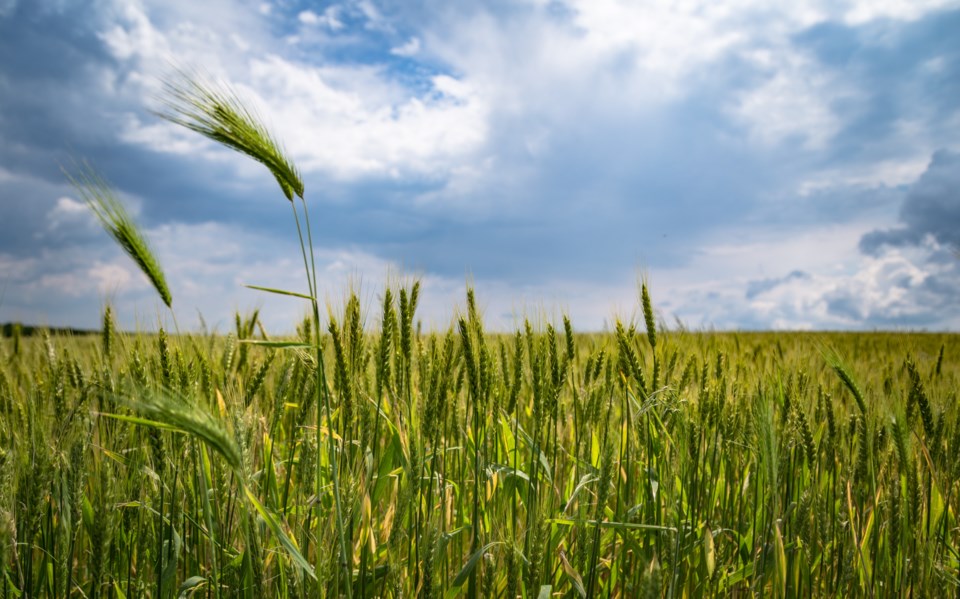GUEST COLUMN: Greenbelt mess raises concern for farmland

Stock photo |
From OrilliaMatters, August 18, 2023
By Martin Straathof
Ontario’s vibrant landscapes and rich, world-class quality farmland have long been the pride of our province.
However, a recent decision and the subsequent auditor general’s report about the removal of 7,400 acres from the Greenbelt has brought the conservation of this treasured land to the forefront of public discourse. This controversy is not just about those acres; it reveals a much larger and pressing issue about Ontario’s dwindling farmland.
The controversy unpacked
The Greenbelt — a protected expanse of farmland, forest, and wetlands encircling the Greater Toronto Area and spanning two million acres — has been at the heart of a major controversy. Premier Doug Ford’s government decided to remove protections from 7,400 acres of land to create more land for housing development. As the public consultation period opened, the voice of Ontarians was unmistakably clear. Of the 35,000 responses that the government received, an overwhelming majority were opposed to this decision.
Numerous reports assert there was no need to encroach on the Greenbelt to fulfil housing development goals. Then why, many wondered, did the government press on with such an unpopular and seemingly unnecessary decision? The auditor general’s inquiry revealed a troubling answer: The land was not selected through an objective or transparent process, allowing private developers to select the land being removed, increasing their collective value of their properties by $8.3 billion, calling into question who is making the decision in our government.
The larger issue at hand: farmland loss in Ontario
This controversy, as vital as it is, only scratches the surface of a much larger crisis looming over Ontario. Despite the size of our province, less than five per cent of Ontario’s land base is prime agricultural land. The Greenbelt protects 750,000 acres of this prime farmland. Between 2016 and 2021, we witnessed the disappearance of 582,392 acres of farmland across the province. This stark number brings a chilling realization: If we continue on this trajectory, we will lose an amount equivalent to the Greenbelt’s protected farmland every six-and-a-half years. At that rate, we risk losing 11.8 million acres of our best farmland within the century.
Adding to the concern, Ford’s proposed Provincial Planning Statement further dilutes farmland protections. The removal of measures like the municipal comprehensive review, which earlier allowed public engagement in the process, is indicative of a concerning trend toward non-transparent decisions. Furthermore, we’ve seen the provincial government force municipal urban boundary expansion onto prime farmland, remove requirements for an agricultural systems planning approach, reduce density targets in some of the fastest-growing municipalities, and weaken policy language that would otherwise protect Ontario’s precious farmland. The Ontario Farmland Trust has provided numerous comments during the consultation period in hopes the government recognizes the graveness of the proposed changes.
The reality of “weeds” in Ontario’s farmland
There have been concerning comments from Ford, who has been quoted saying he sees mere “weeds” when looking at Ontario’s farmland. But what really lies behind these so-called weeds? Typically, when agricultural land visually appears to be neglected, one of two primary scenarios is playing out. The first is an agricultural one, where farmers engage in crop rotation as a form of sustainable soil management practices. The rotation may include keeping the soil fallow for a season to restore soil fertility. The soil is able to rejuvenate its organic matter, which is essential for future cultivation. This common agricultural practice ensures long-term productivity, sustainability of the soil, and offers environmental benefits, such as providing breeding habitat for grassland birds.
The second scenario is more concerning. The land might be owned by speculators who have no intent to farm but instead hope to profit from future development. The interests in non-agricultural investments on farmland drives up the cost of farmland, making it increasingly unattainable for new farmers, thereby threatening Ontario’s future food security.
The way forward
Given the scale of the crisis, it is imperative to view all of Ontario’s farmland with the reverence we reserve for the Greenbelt. We’re standing at a pivotal moment, where our choices will shape the future of food security, sustainable agriculture, and ecological balance in the face of climate change. Housing is vital, but we cannot ignore the parallel urgency to feed our communities. The auditor general’s report is just the starting point. We must broaden our perspective and tackle the broader issue of farmland loss head-on.
We need more than just reactive measures to lost Greenbelt land. It’s time for a proactive, comprehensive strategy to conserve every inch of our farmland. And while it’s essential to meet the housing demands of our growing population, it’s equally crucial to ensure we have the resources to feed and sustain them.
Conclusion
Ontario’s farmland isn’t just plots of dirt and “weeds.” They’re the very fabric of our history, culture, and survival. We are at a crossroads where each decision will impact generations to come. Ensuring the sustainability and prosperity of Ontario’s farmland is not just an agricultural concern; it’s an existential one.
Farmland loss is not just an issue to be debated among policymakers and activists. It affects us all. If we truly wish to safeguard the future of this province, we need public engagement and awareness on par with the fervour we witnessed during the Greenbelt controversy.
As we reflect on these pressing matters, the Ontario Farmland Trust remains committed to championing the cause of farmland conservation. Our call to action is simple: Let us collectively strive to understand, appreciate, and protect this irreplaceable resource. The future of Ontario depends on it.
For more information on the Ontario Farmland Trust and our plans to protect the agri-food system in Ontario, visit our website at ontariofarmlandtrust.ca.
Martin Straathof is executive director of the Ontario Farmland Trust.









Leave a Reply